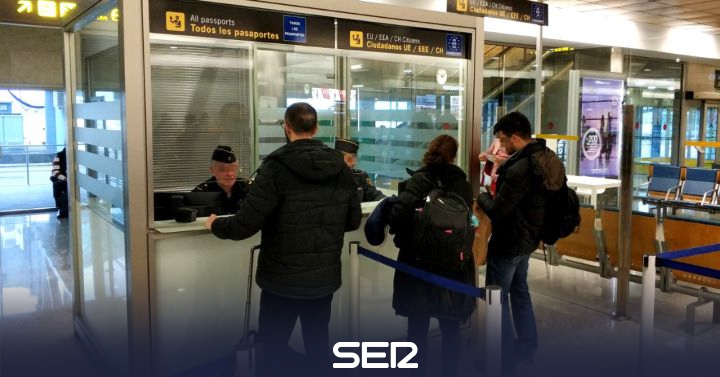Status: May 7th, 2021 5:00 p.m.
–
–
–
Nowhere in the USA are attacks on Jews as common as in New York. The Corona crisis makes them a scapegoat for many – and knowledge about the Holocaust is dwindling.
From Antje Passenheim,
ARD-Studio New York
–
–
–
The New Yorker Doria Kahn has a difficult German story with her: “My great-uncle, my grandfather’s brother, was one of the first Jews to be killed in the Holocaust,” says the student in a café near New York University.
Antje Passenheim
ARD-Studio New York
–
–
–
–
–
Arthur Kahn is buried in the New Jewish Cemetery in Nuremberg. The medical student from Gemünden am Main was just 21 – two years younger than Doria today – when the SS killed him and three other Jews in the Dachau concentration camp in April 1933. In Doria’s family, his fate is omnipresent to this day. “Every year for the Passover festival we tell the story twice. On the second night we light candles for my great-uncle,” she says. “He is an integral part of our family. My father is named after him.”
Politics and economics student Doria is all the more stunned today that stones are flying through synagogue windows again – in New York, where the largest Jewish community outside of Israel lives. “It hurts. I was never brought up to make anti-Semitism a thing of the past,” she says. “But what is happening here is shocking.”
A demonstration against anti-Semitism in New York.
Bild: picture alliance / ZUMAPRESS.com
–
–
Hate attacks on the net are increasing
In the most recent series of attacks, vandals threw stones through the windows of a synagogue in the Bronx. Three other places of worship in the metropolis were also attacked. Mayor Bill de Blasio condemned the anti-Semitic acts and had police protection increased for all synagogues in the city.
The crimes are not isolated cases, as the human rights organization “Anti-Defamation League” (ADL) documents: Almost every fifth attack on people of Jewish faith in the USA occurs in New York. ADL Director Scott Richman is alarmed: “Despite the fact that we had a pandemic last year, that people were isolated, that schools and offices were closed, anti-Semitism has reached an all-time high.”
336 incidents were registered in 2020: swastika graffiti and anti-Israel slogans on house walls, destruction of synagogues. Fear is spreading, says Michael Miller, head of the Jewish umbrella organization “Jewish Community Relations Council” (JCRC). “The physical attacks and the vandalism decreased,” he says. “But what has increased is anti-Semitism online.”
Stigmatized as a corona infection driver
There, perpetrators blow up religious online conferences, spread anti-Semitic or Nazi propaganda or hateful slogans on social media. “I was very sad to hear that and to be confronted again with the reality of what hatred exists in American society – and especially hatred of the Jewish community,” says Miller. The community has been increasingly demonized for years by a part of an increasingly divided society.
In New York, where there are many former Jewish quarters, affordable housing is becoming scarce due to gentrification: “At some point these quarters became minority quarters with African or Latin Americans moving in. Now the renovators are coming,” says Miller and asks: “Where are they supposed to poor people live? That creates tension. And when there is, everyone looks for scapegoats. ”
Jews were also made scapegoats during the pandemic: images of orthodox mask opponents and religious gatherings in times of lockdown sparked generalizations about their actions. Student Kahn was also shocked by the remarks made by some students: “You ask: Why do we have to talk so much about the Holocaust? Jews are so privileged,” she says. The young New Yorker perceives painfully as more and more people around her deny the Holocaust. How fewer and fewer young Americans know what happened in Auschwitz.
“Who are these men with the black hats?”
The Jewish community must above all focus on education, says Rabbi Yehuda Sarna, executive director of the Bronfman Center for Jewish Student Life in New York. Doria expressed what many young Jews felt: “They practice their faith. They are open-minded, liberal and look optimistically about life. At the same time, they are confronted with growing hatred.”
The New York Police Department has its own hate crime prevention unit. The many incidents have been causing fear and unrest for three years, says employee Deborah Lauter: They are currently only exceeded in their number by anti-Asian hate crimes.
Lauter’s department started educational programs. Orthodox clergy explain who they are to other neighborhoods. “Because the children often don’t understand: Who are these men with the black hats and long coats? With the help of the rabbis, we have already been able to remove many prejudices, and that has helped.”
And that is urgently needed, says Doria Kahn, whose great-uncle was one of the first Holocaust victims – and who came to Germany two years ago to attend a memorial service for the victims of the attack on the synagogue in Halle. “When people can believe and say certain things and it is accepted that groups are stigmatized – that has happened before,” she warns. “We know what came out of it – it wasn’t good.”
–


